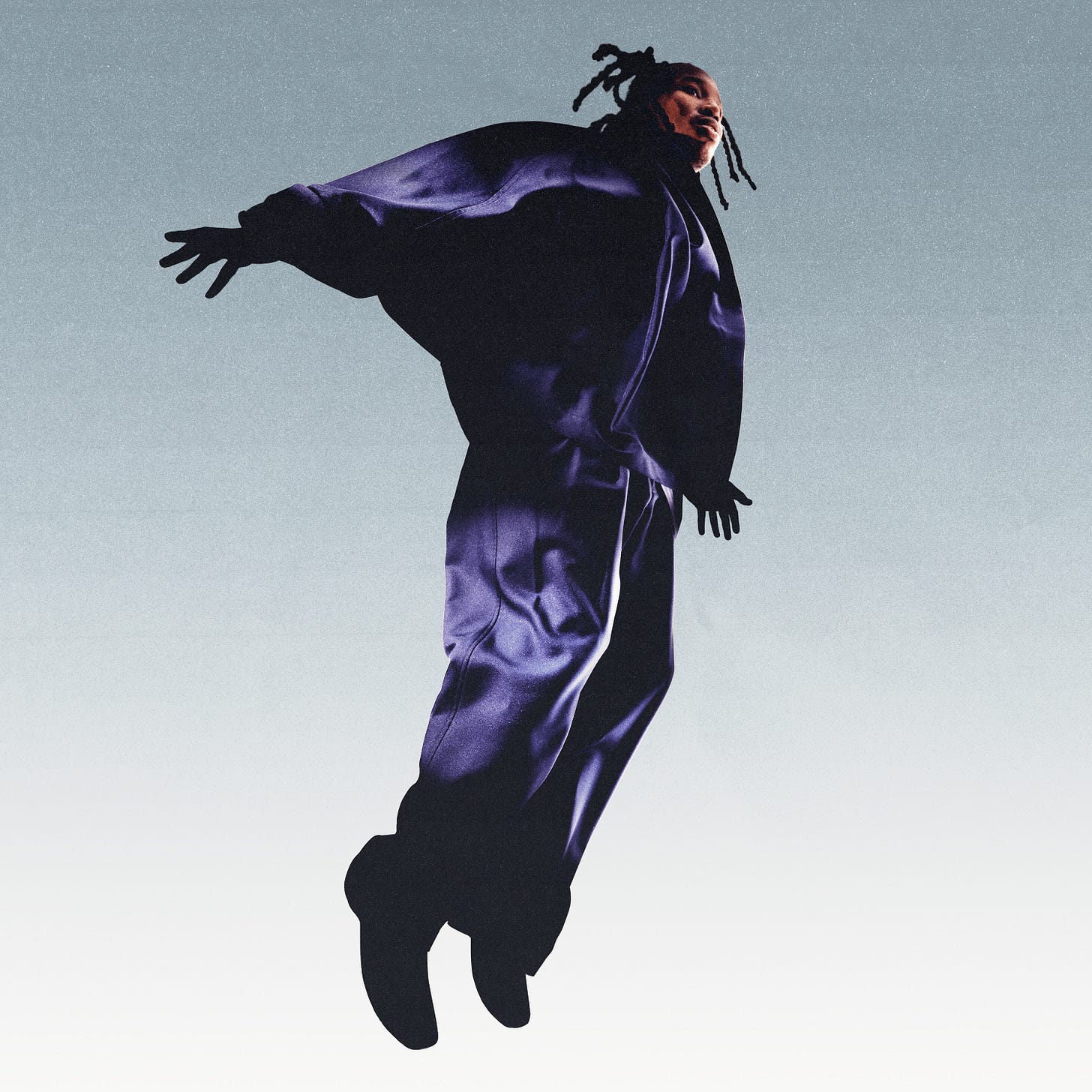Album Review: The Pilot by MAVI
MAVI works out from the chaos of his last record with a sober eye and a heavy heart. This mixtape traces how he confronts the cost of success and the scars he has been carrying.
After laying out his 2024 album Shadowbox as a trophy case to his failures, MAVI got clean and adopted structure. He told Rolling Stone that he made this mixtape during his first sober year, piloting a new version of himself through constant travel and alienation. This tape, released between tours, is so much as a field report from a young man who can’t pretend momentum is smooth. He was constantly on tour, squeezing in museum visits between shows, and started to feel the weight of adulthood and burnout.
“Heavy Hand” and “Triple Nickel” establish that honesty. In the former, he pictures himself as “the best dressed nigga on my therapist couch” and recalls robbing just to survive before suddenly having a million dollars. He admits a half ounce of weed was his novacaine until sobriety made him feel the pain and imagines himself dancing alone on a tightrope, preferring to lose his mind on the road than slow down. On “Triple Nickel,” he warns that he no longer trusts even his friends: “I done been let down by my own, I’ll never be surprised again.” He explains that when his dreams drew near, he pushed people away and, now rich, threatens to erase someone’s history before they reach him. MIKE’s guest verse, full of stress pills and resentment, reinforces how success curdles into paranoia.
Much of the tape recounts addiction and grief. “Silent Film” opens with him enrolling in college and immediately searching for pills. He admits he made “a million off of my grief” yet confesses, “I just know I’m depressed, I don’t wanna mope in depress.” The refrain underlines his resolve to keep working even when he can’t sleep. On “31 Days,” he marks one month sober, thanks his grandmother for keeping him alive during relentless touring, and tells fans not to ask how he feels because he has mouths to feed and no time. The emotional core arrives on “Mender,” where he admits he reached his dreams without sleeping, feels everything he consumes feeds a leech, and sees himself on the cusp of priesthood or the precinct. He acknowledges God while still craving revenge and pleads to reunite with someone he loves when the time is right. These songs reveal a young man ravaged by work, guilt, and the demands of sobriety.
When he turns outward, he highlights the contradictions of his newfound status. “Denise Murrell” is named after an art historian who exposed hidden Black subjects in European painting; MAVI boasts about heavy jewelry and museum talks while admitting he still scans for threats, remembers writing essays for cash and living off his grandmother’s prayers, and concludes that escape feels futile. “Landgrab” compresses history into a few bars. He likens his hustle to John Henry’s struggle with a machine, claims he outruns it, and warns that others might die trying to follow his path. He describes broken glass and generational hustles, and when he says movement is for sport rather than glory, the line feels resigned. As one of the earliest singles, “Potluck,” featuring Smino, finds him calmly outlining plans for his crew and noting that he has rarely gone a month without making $40,000. He warns that politeness should not be mistaken for softness, as Smino’s quips provide levity without undercutting the mood.
“G‑ANNIS FREESTYLE,” a boast about designer brands and being the richest young rapper in Charlotte, which may not be distinct as other songs, but across The Pilot, MAVI documents sobriety, suspicion, and obligation with little adornment. He rejects romanticizing underground success, speaks bluntly about depression, and admits that he feels burdened even when he has “the most with the least, off of no sleep.” He thanks his elders yet notes that money cannot buy peace. When he remembers how to read but says he’s forgotten how to write hooks, he implies that truth matters more than radio. The tape is messy and uneven, but its messiness feels true to a moment when momentum has slowed, and the cost of keeping it up is plain.
Great (★★★★☆)
Favorite Track(s): “31 Days,” “Mender,” “Landgrab”


